Are you passionate about using your art for social change?
Would you be interested in collaborating with an academic to bring cutting-edge research to life visually? Here is an example of a successful attempt at that, to get you excited.
To add global reach to the 7th Cartoon Africa International Biennial (CAIB) festival, Nigeria’s international award-winning journalist and visual artist, Francis Umendu Odupute –the initiator and curator of the growing Cartoon Africa International Biennial (CAIB) – has teamed up with a socially-minded academic from Yale University, USA, Professor Robert Wyman, to collaborate on a series of images that make the latest empirical research about pressing development concerns and social challenges accessible to general audiences.
Population Explosion: A threat to or a treasure for Africa of the future?
When a press cartoon pundit was ‘self-commissioned’ to collaborate with an academic with similar topical interests, it was easy for the academic-artist partnership that invested few months to work together to produce some cartoons and some paragraphs of accompanying text in English. The resulting work – “NIGERIA: How to Get Rich” (a power-point satirical diagnosis of the demographic dilemma of Africa’s most populous black nation on earth) – will be exhibited at 7th Cartoon Africa International Biennial (CAIB).
Focusing on engaging and interactive public presentations; it will also be published for free global downloads during the launch of the CAIB program’s new website: Cartoonafricamuseum.org ; and, finally, it will become part of the ongoing touring ‘CartoonAfrica SDG Cartoon Campaigns and Workshops’ which began in Bonn (Germany) at the 2019 UN SDG Global Festival of Action. The aim is to broaden audience engagements and expand the conversations across Africa, especially among youths. “If you want to change a nation, change the youths”.
To freely download the book by Wyman and Odupute (in PDF format), click here:
*If you would like to create your own successful and succinct international, cross-racial and inter-cultural literature collaboration, and want to ask any questions on how it works, or want to also collaborate, please email one of the organizers:
africanpresscartoon@gmail.com
mediabfi@gmail.com
ABOUT THE AUTHORS


Robert Wyman is a Biology Professor at Yale University. He earned a BA at Harvard University and then a Ph.D. at the University of California, Berkeley. He was a Post-Doctoral Fellow the California Institute of Technology. He later did research at the Nobel Institute in Stockholm, Sweden, the Basel University, Switzerland, and in the Lab of Francis Crick at Cambridge University in England.
Some have considered his neurophysiology findings as being one of the four most important in the last century (see the textbook, Neurobiology, from Oxford University Press and Frontiers in Neural Circuits, 4/26/23).
Professor Wyman for decades, he taught Yale’s demography course, Global Problems of Population Growth. Yale chose it to be one of the first courses to be offered to the international public on the web at Yale Open Courses (http://oyc.yale.edu/molecular-cellular-and-developmental-biology/mcdb-150).
His course was translated into Chinese where it was watched by 1.8 million viewers: https://open.163.com/newview/movie/courseintro?newurl=M6GIRHEOH. Prof. Wyman was the Lead Interviewee for the China National Television: World Service Special Report on the day that the 7 Billionth child was born: http://www.cncworld.tv/news/v_show/19416_seven_billion_and growing–can_our_world_cope.shtml.
Prof Wyman was a Board of Directors member for Planned Parenthood of Connecticut and was awarded Planned Parenthood’s Cornelia Jahnke medal.
Prof. Wyman will be joined by his wife Guigui Yao who was a Professor at Jianghan University in Wuhan, China. She was Director of the Center for American Culture at the University. She has presented her research at many conferences in China and abroad. She has been a Fellow and an Associate Research Scholar at Yale. They are the joint authors of papers on reproductive and population issues and Prof. Yao has published (in Chinese) on Feminism and Women’s Studies.
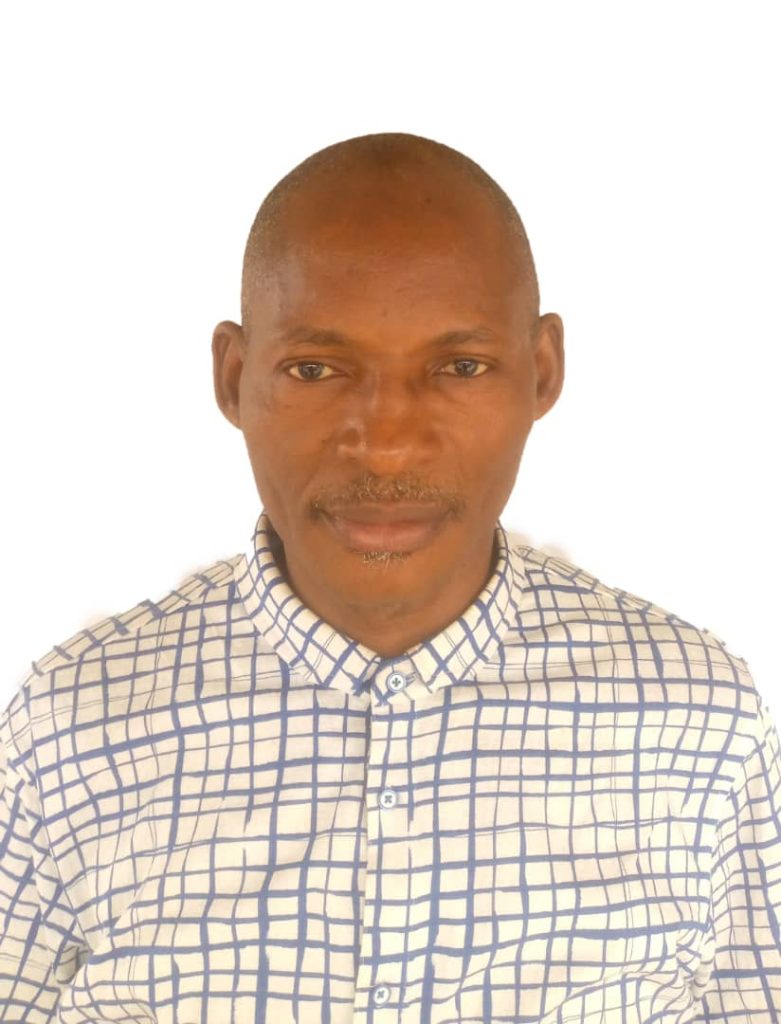
FRANCIS UMENDU ODUPUTE is a versatile visual artist and an international media award-winning journalist. He received his tertiary education/ professional trainings (B.A degrees in Painting, and MFA in Painting, from the University of Benin (UNIBEN), Benin City; and (post graduate diploma in journalism, from the International Institute of journalism (IIJ), Abuja.
ODUPUTE is the founder of Francodus Art Foundation (FAF), an art, culture and tourism organisation registered in Nigeria. He is also the President of the Beautiful Feet International (a faith-based development organisation); the chairman, WASH Journalists Network Nigeria, Edo State chapter; the Secretary, Nigeria Union of Journalists, Observer Chapel; and the CEO of African Press Cartoon services. He initiated and curates the ‘CARTOON AFRICA INTERNATIONAL BIENNIAL (CAIB) FESTIVAL: Cartoonafricabiennial.org – an initiative which was certified United Nations SDG Action Partner by the UNDP in May, 2019.
On 4th December, 2009, ODUPUTE won the Global Media Award for Excellence in Population Reporting (Editorial Cartoon category) from the Population Institute, Washington, D.C., USA (https://www.populationinstitute.org/external/files/2009_Program_Booklet.pdf). ODUPUTE won the WASH Media Awards 2012 (Cartoon/photo category) in Stockholm, Sweden, on 31 August, 2012 (http://saharareporters.com/node/14529/de; https://www.15min.lt/video/meet-the-winners-of-the-wash-media-awards-86682). He won the media award on environment reporting from the UNDP/Lagos State Government on 21st, November, 2012; he also won the maiden Samuel Ogbemudia Development Journalism Media Award (print category) in Benin City, Edo State, on December 15, 2015.
On 31st January, 2019, ODUPUTE was invited by the United Nations to feature the CAIB traveling SDG Cartoon campaigns and workshops at the 2019 UN SDG Global Festival of Action which held in Bonn (Germany) from May 2 to May 4, 2019, and after exhibiting at the UN SDG festival in Bonn, ODUPUTE was approached by Bonnections for collaboration to take the CartoonAFRICA cartoons from the UN festival to some local events to broaden audience engagement on human rights, migration, children/youth empowerment, gender issues, etc.
In the context of securing Africa of the future; visit:
1. https://twitter.com/bristolggc/status/1124306418763554816.
2. Also, see “Cartoon Africa International” featured in the Instagram story about all the innovations and exhibits at the SDG global festival: https://www.instagram.com/stories/highlights/17876283913355987
Here is a draft of the book-in-progress for your review:

(A Collaborative Satirical Research by an Academic and an Artist cum Journalist)
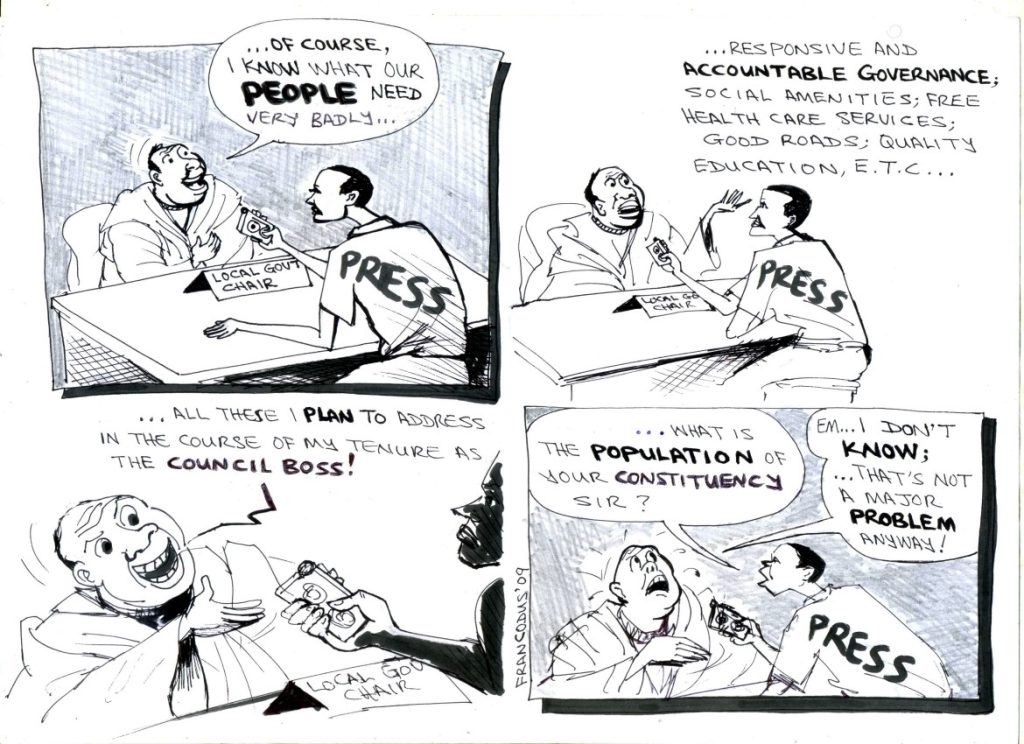
THE BOOK COVER: featuring the editorial cartoon on population by Odupute which won the prestigious “Global Media Award” in 2009, from the Population Institute, Washington DC, USA.
WHY ARE PEOPLE SO POOR IN NIGERIA?
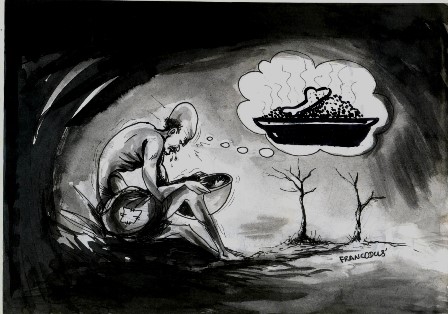
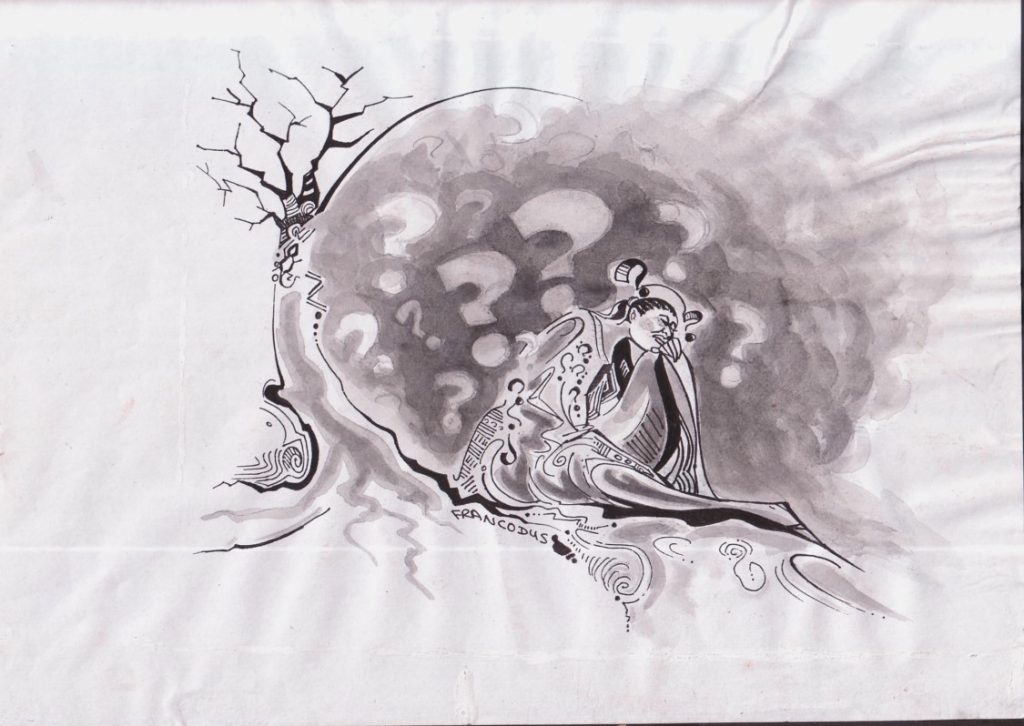
Because there are so many more people than jobs.
Men are so desperate for a job that they will work for almost nothing.
If anyone who is lucky enough to get a job wants more pay, the boss says to him,
“I have a thousand people at my door wanting your job at your pay. Get the hell out.”
Businesses have to pay workers only enough for them to survive.
Before China modernized, it was poorer than Nigeria.
When businesses had to move something they used carts.
They could either get a donkey or they could hire a man to pull the cart.
Which do you think businesses chose?
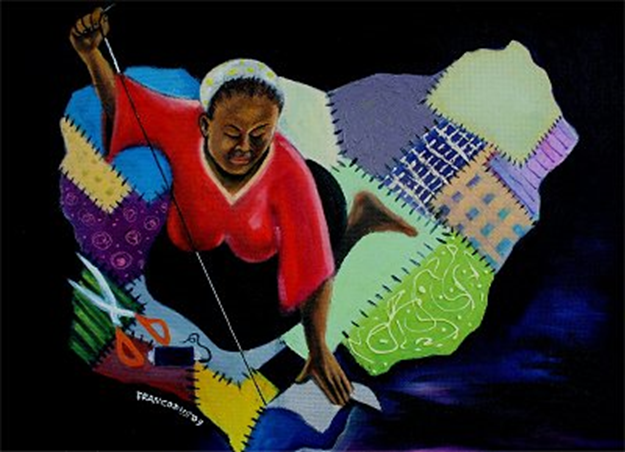
[Ask group to answer question — pause for answer]
In fact, businesses chose to hire men.
Why?
Men and Donkeys need about the same amount of food each day to keep them alive.
So, to survive they both need about the same amount of money.
Because, once you have a donkey, you have to feed it all the time.
But, a man you can hire by the day, and just pay him for that day.
When business is slow, or at holidays – you don’t have to pay anything.
MEN WERE CHEAPER THAN DONKEYS
HOW DO YOU DESCRIBE A COUNTRY LIKE THAT?
OVERPOPULATED
MANY MORE PEOPLE THAN JOBS
LIKE NIGERIA
LAGOS
HOW CAN YOU RUN A BUSINESS WHEN YOU CAN HARDLY EVEN MOVE?
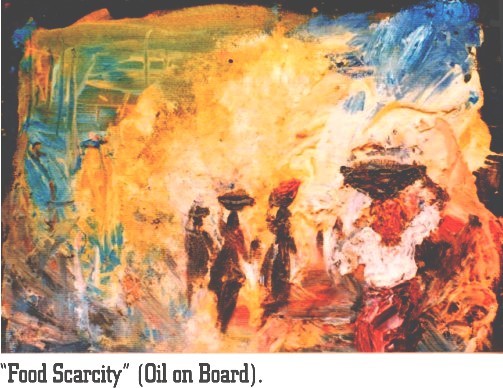
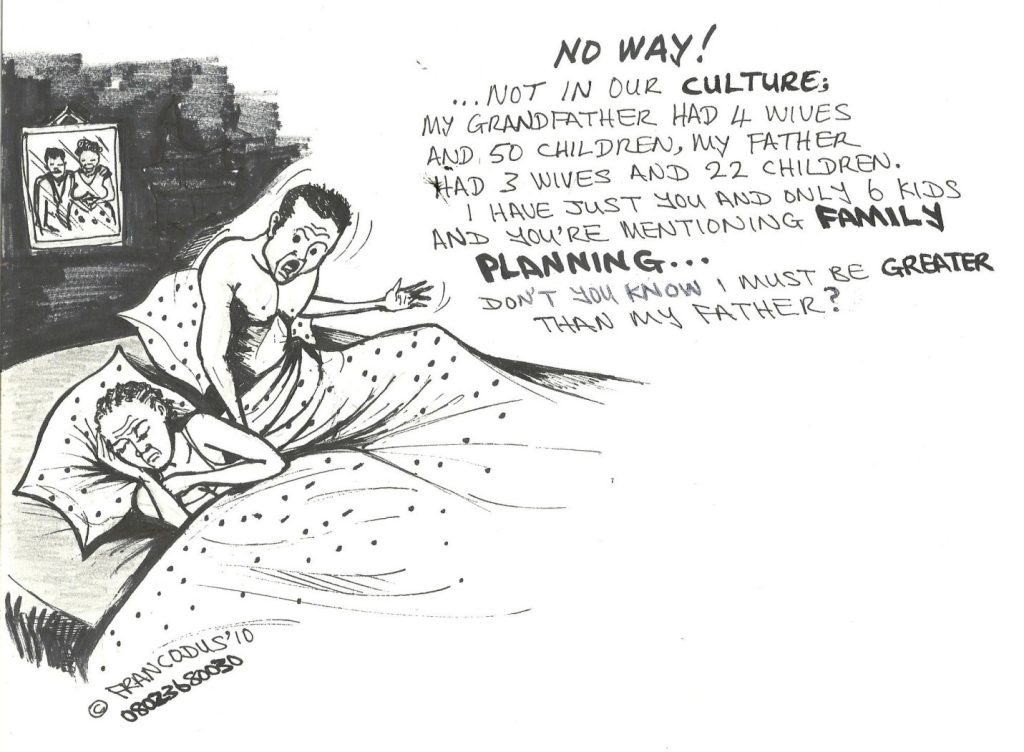
HOW DOES ECONOMIC DEVELOPMENT HAPPEN IN A COUNTRY LIKE THAT?
PEOPLE WHO ALREADY HAVE MONEY CAN SET UP BUSINESSES.
BECAUSE THEY CAN PAY THEIR WORKERS SO LITTLE
THEY CAN EXPORT GOODS AT THE LOWEST PRICE.
THE OWNERS CAN SELL A LOT AND MAKE A FORTUNE.
THIS HAPPENED DURING AMERICA’S GILDED AGE, WHEN “ROBBER BARONS” FLAUNTED THEIR JEWELS AMID EXTREME INEQUALITY AND POVERTY.
OF COURSE, THE WORKERS ARE MAKING SOME WAGE, BUT NOT ENOUGH THAT THEY COULD BUY WHAT THEIR FACTORIES MADE.
BANGLADESH IS ANOTHER GREAT EXAMPLE OF THIS.
OWNERS SET UP CLOTHING FACTORIES.
THESE FACTORIES SOLD A LOT TO COUNTRIES WHERE CLOTHES JUST GET THROWN AWAY AFTER THEY HAVE BEEN USED JUST A LITTLE.
THE OWNERS GOT FABULOUSLY WEALTHY – BUT THE POPULATION OF POOR PEOPLE KEPT GROWING AND THE POOR SAW VERY LITTLE BENEFIT.
INDIA, WHERE THE MANY CITIZENS CAN SPEAK ENGLISH. THEY SET UP “CALL CENTERS” AND THE RICH MADE A LOT OF MONEY AND THE WORKERS, IF THEIR ENGLISH WAS GOOD ENOUGH, MADE SOME MONEY.
WHAT HAPPENED IN INDIA:
THE TOTAL WEALTH OF BILLIONAIRES HAS STEADILY INCREASED FROM UNDER 5% OF NATIONAL INCOME IN THE 1990S TO MORE THAN 20% IN 2022.
THEIR DIZZYING RISE IS IN GREAT CONTRAST IN A LAND WHERE
MANY LIVE BELOW OR JUST AROUND THE POVERTY LINE.
Even though India now is one of the fastest growing economies in the world, : Currently, about 24 million young people mature into working age each year (The Hindu 2023) but only 4.1million new jobs were added in 2022 (Sharma 2023), and these are predominantly in the low paying, unorganized sector. This is in a background of an estimated 218 million (Kumar 2022) or 286 million (The Hindu 2023) people who are un- or underemployed. Recently, ½ million young people, after studying for years, took the test for 281 jobs; there was one job for every 1800 applicants (Travelli and Kumar 2023). Nationally, “from 2014 to 2022, Indians filed more than 220 million job applications with the central government. Of those just 270,000 – less than 1/3 of 1 percent were successful” (Travelli and Kumar 2023).
YOUNG PEOPLE SPEND YEARS STUDYING FOR EXAMS – BUT THEY DON’T GET A JOB.
THEY STAY AT HOME AND, WITHOUT A JOB, CAN’T GET MARRIED.
WHAT COULD BE THEIR MOST PRODUCTIVE YEARS ARE WASTED. THIS IS A REAL SIN.
India: https://www.nytimes.com/2024/07/12/world/asia/india-ambaniwedding-billionaire.html
INDIA’S CREATION OF JOBS
HAS NOT KEPT UP WITH ITS EXTREMELY RAPID POPULATION GROWTH.
½ MILLION YOUNG STUDY FOR YEARS, BUT THERE IS ONLY 1 JOB FOR EVERY 1,800 APPLICANTS
*INDIA
*LOOKING FOR A JOB IN INDIA (MUMBAI).
*LOOKING FOR JOBS IN INDONESIA
*FINDING A JOB IN INDONESIA (JAKARTA) TRASH PICKERS
WITH ITS VERY HIGH BIRTHRATE, NIGERIANS ARE CROWDING OUT EACH OTHER IN THE JOB MARKET.
JOBS ARE RARE AND WAGES ARE TERRIBLE. TOO MANY PEOPLE COMPETING FOR THE SAME JOBS!
ALL FAMILIES WANT MORE CHILDREN. CHILDREN ADD TO THEIR PRESTIGE AND ONE CHILD MIGHT GET A GOOD JOB AND SUPPORT HIS/HER PARENTS IN THEIR OLD AGE. BUT THE RESULTS ARE A DISASTER FOR ALL.
*Francis: PUT IN WHATEVER REASONS ARE MOST COMMON IN NIGERIA
“Be fruitful and multiply. Now divide” (A cartoon on population challenges)
TOO MANY PEOPLE: THE RESULT IS POVERTY
THE POOREST COUNTRIES, MOSTLY IN AFRICA, DID NOT INCREASE THEIR PER CAPITA INCOME, WHILE THE RICH COUNTRIES ZOOMED AHEAD.
SUB-SAHARAN AFRICA’S ECONOMY ACTUALLY GREW BY 3X IN THIS PERIOD. BUT POPULATION ALSO GREW BY 3X. SO, THERE WAS NO IMPROVEMENT IN PER CAPITA INCOME (INCOME PER PERSON).
IT’S NOT ONLY AFRICA, ASIA ALSO
GROWTH IN GDP PER CAPITA 1950 -2008:
WHAT’S THE DIFFERENCE? WHY DID S. KOREA DO SO WELL WHILE THAILAND IMPROVED AND PHILIPPINES WENT DOWN?
BUT SOME POOR COUNTRIES GOT OUT OF THIS POVERTY TRAP.
HOW DID THEY DO IT?
THEY DID IT BY HAVING FEWER CHILDREN
IN 1970, CHINA WAS POORER THAN SUB-SAHARAN AFRICA
IT HAD BEEN NEARLY DESTROYED BY COLONIALISM
IT WAS FURTHER DESTROYED BY JAPAN’S INVASION
THEN IT HAD A BLOODY REVOLUTION OF COMMUNISTS VS. NATIONALSTS
YET IT GOT RICH
CHINA IS A GREAT EXAMPLE
IN PRE- MODERNIZATION CHINA:
MINING COAL
HUMANS HAUL THE COAL
CHEAPER TO HIRE A HUMAN THAN TO BUY A TRUCK
CHEAPER TO FEED A HUMAN THAN TO PAY FOR GAS FOR A TRUCK
CHINA TRIED TO INDUSTRIALIZE FAST
IN THE GREAT LEAP FORWARD
IT FAILED
MAO BELIEVED THERE SHOULD BE LOTS OF CHILDREN
TO MAKE CHINA STRONG!
THE RESULY WAS A GREAT FAMINE WHERE 20-40 MILLION PEOPLE STARVED TO DEATH
FINALLY
CHINA’S WOMEN REDUCED THEIR BIRTH RATE FROM ABOUT 6 CHILDREN EACH
TO JUST OVER 2 CHILDREN
IN ONLY 10 YEARS!!
AVERAGE # OF CHILDREN
PER WOMAN
CHINA
# OF CHILDREN PER WOMAN
HUGE FERTILITY CHANGES CAN HAPPEN
IN ONE DECADE.
IN CHINA IT HAPPENED IN
THE DECADE BEFORE THE ONE CHILD-POLICY.
CONTRACEPTION WAS LEGALIZED AND PROVIDED FREE.
THE LEGAL AGE OF MARRIAGE WAS RAISED.
THE GOVERNMENT PROMOTED AND EDUCATED WOMEN ABOUT CONTRACEPTION
ONE-CHILD POLICY INTRODUCED 1980
THE RESULT
THE ECONOMY BOOMS
INCOME PER PERSON INCREASES BY A FACTOR OF ABOUT 20X
WHY DID THE ECONOMY BOOM?
WHEN PEOPLE HAVE LOTS OF KIDS, THEY SPEND ALL THEIR MONEY ON FOOD, CLOTHING, SHELTER.
THEY HAVE NO MONEY LEFT FOR MANUFACTURES.
AFTER THE LAST BIG GENERATION OF CHILDREN GROWS UP,
THE NEW GENERATION HAS FEWER KIDS.
THEY HAVE SOME MONEY TO SPEND.
THE ECONOMY BOOMS.
THE SAME STORY IN SOUTH KOREA
FERTILITY DROPS FIRST
ECONOMIC DEVELOP-MENT FOLLOWS
THE SAME STORY IN THAILAND
FERTILITY DROPS FIRST
ECONOMIC DEVELOPMENT FOLLOWS
TOTAL FERTILITY RATE IN UNITED KINGDOM FROM 1800-2020
THE SAME STORY IN THAILAND
FERTILITY DROPS FIRST
ECONOMIC DEVELOPMENT FOLLOWS
BOOM! ENGLAND’S PER CAPITA INCOME
TOOK OFF!
IT WAS ONLY AFTER ENGLAND’S BIRTH RATE DROPPED
(STARTING ABOUT 1870)
THAT THERE WAS A SUSTAINED INCREASE IN ITS PER CAPITA INCOME.
IRELAND IS A VERY CATHOLIC COUNTRY
THE CHURCH WOULD NOT ALLOW CONTRACEPTION
IRELAND WAS ALSO THE POOREST COUNTRY IN WESTERN EUROPE.
ITS PER CAPITA INCOME MADE NO PROGRESS IN THE 1960s, 1970s, AND 1980s.
IN 1980 CONTRACEPTION WAS FINALLY LEGALIZED.
THE BIRTHRATE FALLS AFTER THE LEGALIZATION OF CONTRACEPTION
AFTER THE 1980 LEGALIZATION OF CONTRACEPTION, BOOM! IRELAND’S ECONOMY NEARLY DOUBLES
IN THE 1990S
BOTTOM LINE:
A RAPIDLY GROWING POPULATION KEEPS PEOPLE POOR
IT MAKES IT VERY HARD TO IMPROVE JOBS, SANITATION, HEALTH, EDUCATION, ETC.
NO COUNTRY HAS EVER GOTTEN OUT OF THE POVERTY TRAP WITHOUT FIRST LOWERING ITS BIRTH RATE NIGERIA CAN GET OUT OF ITS POVERTY!
